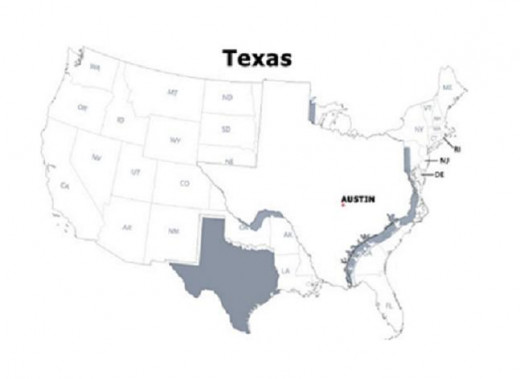Texas Child Support Regulations


By Joan Whetzel
All states have laws set up to regulate child support. In Texas, as with all states, the non-custodial parent contributes financially to the parent who takes care of the child most or all of the time. These financial contributions, known as child support, are enforced by the court system and the Texas Attorney General’s Office.
Information Needed to Locate the Noncustodial Parent
The Texas Attorney General’s Office first needs to locate the noncustodial parent before the child support can be enforced. The custodial parent must be able to supply as much of this information as possible when making the application for child support. The most important information includes:
- The non-custodial parent’s name.
- The address of the non-custodial parent’s home.
- The current employer’s name and address (if known).
Other information that may be helpful in locating the non-custodial parent consists of:
- Date of birth.
- Social Security Number (look on tax filing forms from previous years).
- Names and addresses of friends and relatives.
- The names of any banks, creditors, or utility companies (if known).
- Names of any organizations, clubs, churches, etc. that he or she belongs to.
Other papers that can be helpful in the application process:
- Divorce decree or separation agreement.
- Custody orders.
- Previously awarded child support decrees.
- Birth certificates for the child(ren).
- Any documents you have that show your income as well as the non-custodial parent’s income (if available, check previous tax returns).
- Any evidence you may have of past child support payments.
Wage Garnishments to Collect Child Support
Wage garnishment is not an option or a requirement in most states. However, in Texas, garnishment from the non-custodial parent’s paycheck for child support payments is required by law. It is meant as a guarantee that payments are made.
Medical Insurance as Part of Child Support
In Texas, the child support laws require that the non-custodial parent provides medical coverage. This insurance coverage is in addition to the child support payments. If coverage is available through his or her employer, then they must buy into their medical plan. Otherwise, the non-custodial parent must purchase medical coverage elsewhere.
Determining the Amount of Child Support
The child support payment amount is determined by two factors: (1) the number of children he or she has, and (2) his or her net income. A non-custodial parent with:
- One child pays 20% of his or her net income.
- Two children pays 25%.
- Three children pays 30%.
- Four or five children pays 35 to 40%
- Six or more children pays more than 40% of his or her net income.
When Does Child Support End?
As in all other states, child support in Texas ends once the child turns 18 years or when the child graduates from high school – whichever one comes first. If a child that becomes an emancipated minor or that gets married before the age of 18, that will also end the obligation for child support payments.
Child Support and Visitation
If the custody agreement or court order provides visitation rights to the non-custodial parent, then the custodial parent must follow that court order, even if the non-custodial has somehow managed to avoid child support payments. Legally, withholding visitations is not an option. The courts don’t look kindly on one parent using the custody order as a weapon to clobber the other parent into submission or into compliance. If the non-custodial parent is avoiding or somehow skirting the child support responsibilities, there are other avenues that must be pursued.
Retroactive Child Support
In Texas, there are two situations where a judge may order retroactive child support (sometimes referred to as back child support). The first is where the non-custodial parent was never ordered to pay child support (at the time that custody was decided) and in cases where the non-custodial parent was ordered to pay child support. The court considers the following issues when deciding whether to order retroactive child support:
- whether the non-custodial parent knew he was the father;
- whether the mother attempted to notify him that he was the father;
- whether ordering retrograde child support will cause a financial strain on the non-custodial parent; and
- whether the non-custodial has provided any child support payments, or other forms of support in the past.
As with regular child support payments, the amount of retroactive child support that can be ordered depends on the net income of the non-custodial parent. Retroactive child support can be awarded for up to 4 years prior to the courts order, which is generally considered to be “reasonable and in the best interest of the child” according to State law. The custodial parent has up to 4 years after each child’s 18th birthday to file for retroactive child support. But how many years of retroactive support is awarded is up to the judge.
Non-custodial should know that, just because they have avoided child support payments so far, doesn’t mean they can avoid it forever. Any time the custodial parent applies for child support, the judge may well consider retroactive child support in addition to future child support payments.
Child Support Enforcement
Enforcement of child support payments can get a little dicey. As stated before, withholding visitation rights is not an option. There are a few issues to keep in mind with regards to collecting support payments. The consequences of taking these actions are far worse for the non-paying parent than merely preventing visitation.
- For non-custodial parent living in another state, there are laws in place that require cooperation between states. The non-custodial parent is legally required to pay child support, even if it the court order was issued in another state.
- Non-custodial parents who refuse to pay child support, or who get behind in their payments, are subject to enforcement actions designed to collect those support payments including:
- Garnishing the non-custodial parent’s wages.
- Seizing Federal income tax refunds, lottery winnings, and any money they may be receiving from State of Federal resources.
- A lien filed against any property or assists.
- Suspension of his or her driver’s license or any other licenses (i.e. hunting, fishing, professional – like medical and dental licenses); and yes, the State of Texas works with other State licensing agencies to ensure that this step will be pursued.
- Lawsuits filed against the nonpaying parent for the purpose of enforcing the child support order, which may result in jail time (up to 6 months) for the for nonpayment as well as a judgment for any past due amount.
- Non-payment of child support will be reported to the credit bureau.
Child support is no light matter. Whether it’s court ordered or not, the non-custodial parent has an obligation to help take care of that child. Shirking that responsibility could end up costing more than the child support payment.
Resources
Child Support Laws by State. Texas Child Support Laws.
http://www.child-support-laws-state-by-state.com/texas-child-support.html
Attorney General of Texas, Greg Abbott. Texas Child Support, FAQs.
https://www.oag.state.tx.us/cs/parents/faq.shtml#charged
Decker, Kelly. Family Law and Divorce in Texas. Back Child Support Laws in Texas.
http://texasfamilylawanddivorce.wordpress.com/2012/03/02/back-child-support-laws-in-texas/






